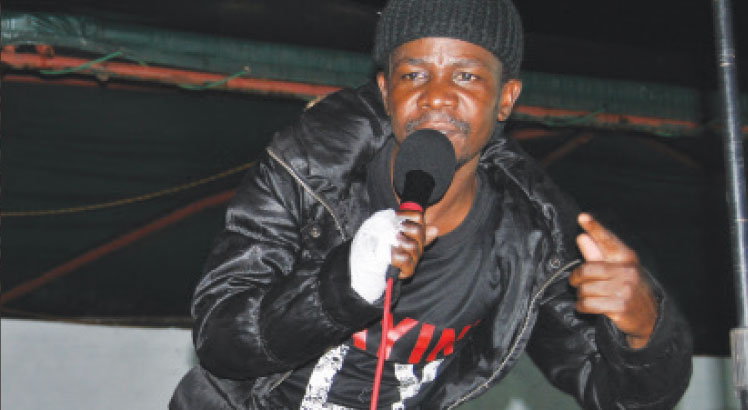There are concerns that government may not fully utilise the $90 million (K101 billion) for construction of 250 secondary schools under the Secondary Education Expansion for Development (Seed) project due to slow progress, a recent report shows.
The four-year United States of America–funded programme was launched in 2018, before it was extended to 2025.
The 2023 Education Sector Performance Report shows that for the past five years the project has been operational, only 44 new community day secondary schools (CDSSs) or 18 percent of the project work have been completed and are operational while 59 new schools are under construction in the current financial year.
A total of 35 schools have been expanded while 111 schools are under expansion, according to the report.
Meanwhile, there are fears that the slow progress means that government may not meet the project completion date in 2025 and that funds maybe withdrawn.
Chakwera relaunches the project on May 7 2021
The US Embassy Public Diplomacy Section said, in an interview yesterday, the information it has is that the project will expire in 18—24 months.
“Whether funds will be withdrawn if the government does not meet the target, [the Section] will give its position on the exact deadline of the project.”
In an interview this week, Civil Society Education Coalition executive director Benedicto Kondowe feared that the delays to meet the target risk eroding donor trust and potentially leading to reduced future funding.
According to Kondowe, the country’s ability to meet its development targets may be compromised if it cannot demonstrate efficient project implementation and financial stewardship.
He warned that the delays in completing the project in full could have far-reaching implications for the education system and development goals.
He further added that addressing these issues promptly is crucial for ensuring that donor-supported initiatives effectively impact education and, by extension, the nation’s broader development.
He explained that delayed construction means that students in need of secondary education may continue to face inadequate facilities and overcrowded classrooms, hindering their access to quality education.
Said Kondowe: “This would in turn perpetuate low literacy rates and limited opportunities for the youth, affecting the country’s human capital development.”
Ministry of Education spokesperson Mphatso Nkuonela asked for more time before commenting on what is causing the delays.
But former minister of Education Agnes NyaLonje last year blamed the delay on land identification and land assessment as well as procurement processes.
In a Ministerial Statement delivered in Parliament, she also admitted that construction works in the Seed project were behind the proposed schedule for completion.
NyaLonje said: “Landowners are demanding compensation, but according to the memorandum of understanding [MoU] signed between the Malawi and US governments, land for the Seed project school construction is to be volunteered by respective communities.”
Another education expert Limbani Nsapato observed that the situation is regrettable since more than half of students who excel in their PSLCE don’t make it to secondary school due to lack of space.
Nsapato added that there is need for government through the ministry to expedite the construction process by addressing procurement issues and ensuring that only motivated and efficient companies are awarded construction work.
He said: “When left unattended, the ones who will suffer are poor children whose parents may not find alternative schools for their secondary education. Such children will drop out of the system and risk having a bad future.”
In a separate interview educationist Steve Sharra said it would be useful to find out the flexibility of the window period to utilise the $90 million, and whether it can be extended as the delays are persisting and the speed is not picking up.
Said Sharra: “Government’s goal is to have constructed 235 new secondary schools by 2025, which is just over two years from now. I would like to hear from construction experts as to the country’s capacity to construct the remaining 191 secondary schools between now and 2025, other factors being equal.
“With a net enrolment of 17 percent of the age-appropriate cohort of 14-17 year-olds attending secondary school, there is a great need to construct more secondary schools at a faster pace.”
Fears for loss of donor trust: Kondowe
Among others, the report shows that inadequate infrastructure has hindered student transitions from primary to secondary education, affecting accessibility and expansion.
“Addressing infrastructure deficits is crucial for accommodating more students and improving the quality of secondary education,” reads the report.
The report also shows that net enrolment ratio (NER) remained persistently below targets, with a slight improvement from 15 percent in 2018 to 17 percent in 2023, still far from annual goals.
Gross enrolment ratio (GER) also consistently fell short of targets, ranging from 22 to 26 percent with a reported GER of 26.1percent in 2023, indicating an overage or underage enrolment rate of 9.1percent.
Reads the report: “The historical trend suggests challenges in achieving the 2025 targets of 30 percent and 38 percent for NER and GER, respectively, in secondary education. Current enrolment rates imply that only 17 percent of school-age population have access to secondary education, highlighting the need for increased access.”
In an earlier interview the US Embassy Public Diplomacy Section said the US government, through USaid, was committed to successfully implement the Seed programme.
“Our commitment to the project, in partnership with the ministry, remains steadfast,” the section said in response to our inquiry on the implication of the delays to construct the schools under the programme.
The post Government scores 18% on schools’ project appeared first on The Nation Online.
 Moni Malawi
Moni Malawi 

